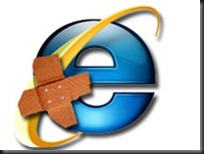What’s new:
| Improvement in Time Matters 11.1 | Benefit to Customers |
| Integration with Exchange Server 2010 | Allows firm members to synchronize their individual Time Matters calendars and contacts with Microsoft Outlook® for anytime access on their desktops or mobile phones. Enables firms to take advantage of the latest Exchange Server enhancements from Microsoft. Click here to see what's new in Exchange Server 2010. |
| Handling of recurring events in Exchange Server 2007 integration | Helps firms operate more efficiently-no need to manually re-enter or update multiple events in Time Matters when a recurring event is created or changed in Microsoft Outlook. |
| Import calendar events and contacts from previous Time Matters and Exchange Server 2003 and 2007 integrations | Reduces the time and cost required to upgrade to Exchange Server 2010. |
| Include and view the location and attending contact in Time Matters Mobility calendar events
**Customers must previously have installed the most current version of the Time Matters Mobility Access Manager and subscribe to a current Time Matters Annual Maintenance Plan to access the feature. | Gives Time Matters Mobility users detailed information about an appointment on their Web-enabled smartphones or other mobile devices. |
| Quality improvements based on customer change requests | Addresses the issues customers have reported, helping the software continue to run smoothly. |
If you have an annual Maintenance plan, this software upgrade is available to you at no cost. If you have any questions regarding this upgrade, please call Glasser Tech at 516-762-0155.






